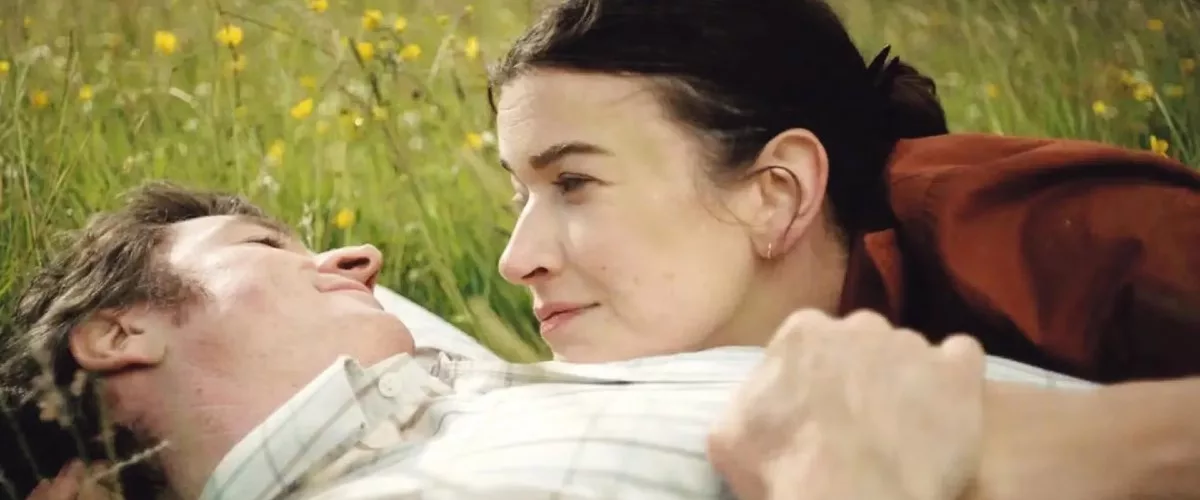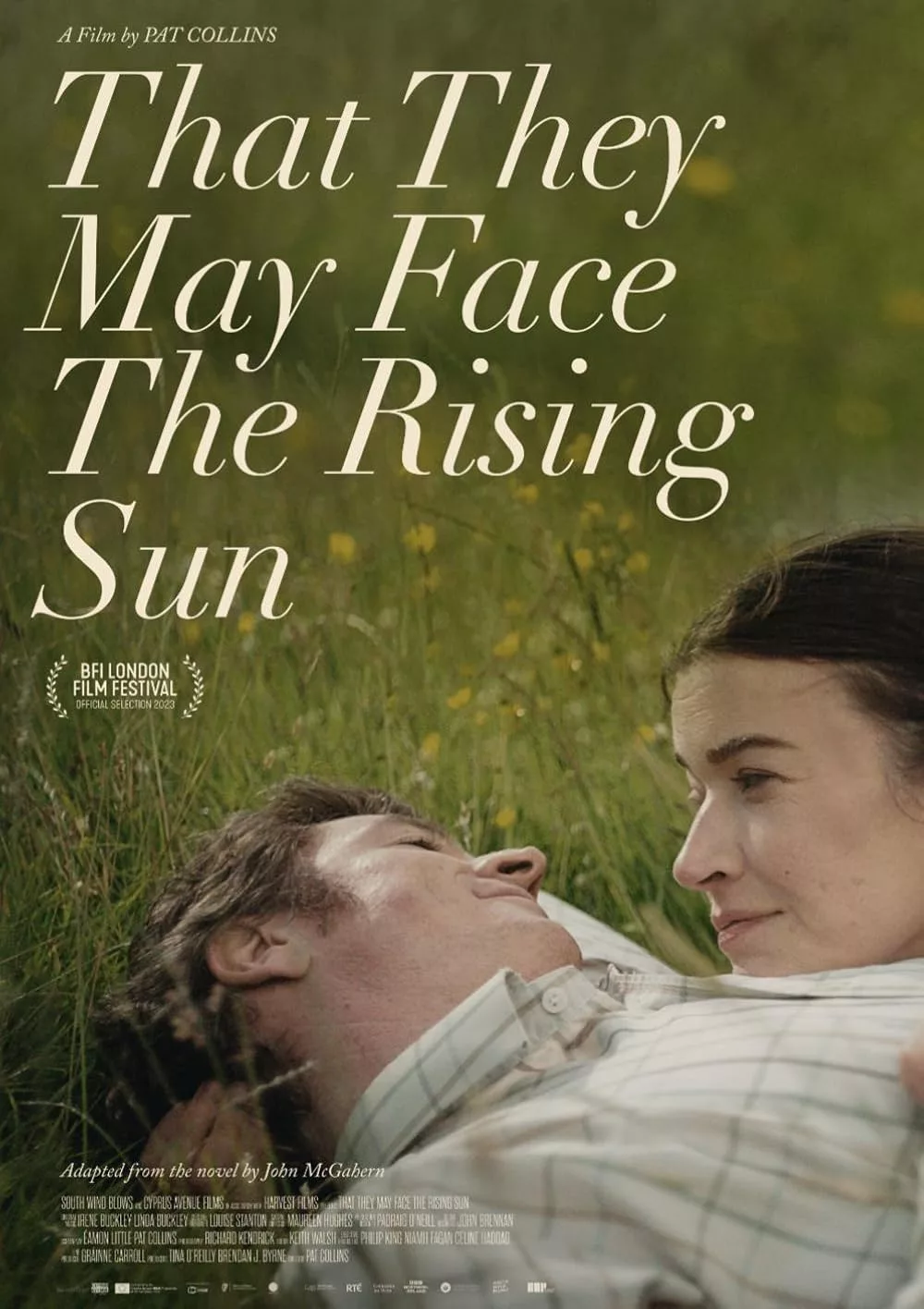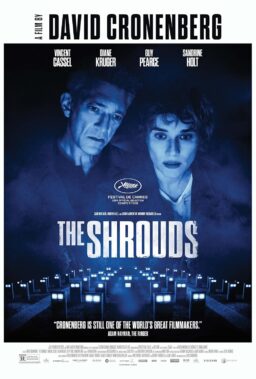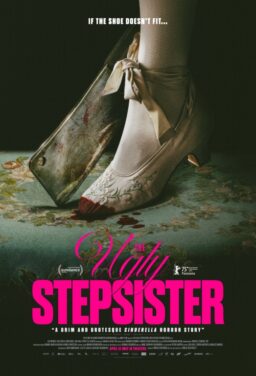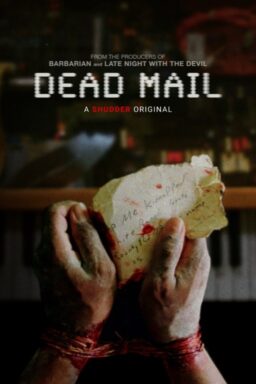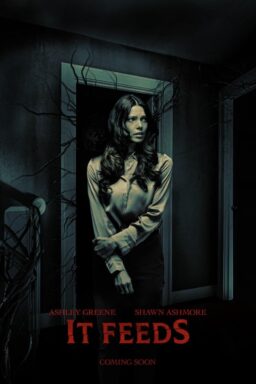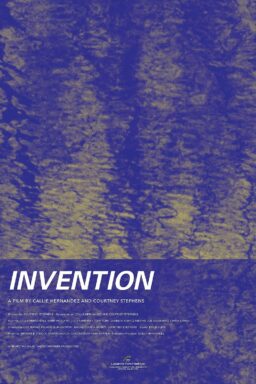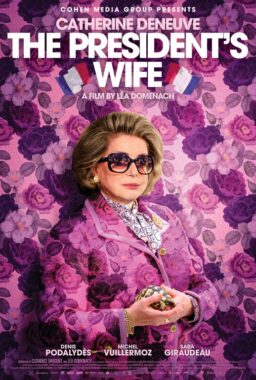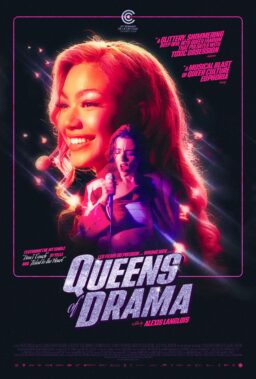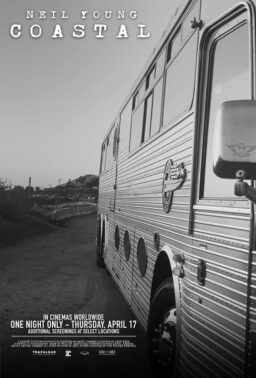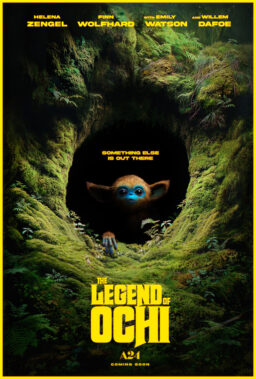John McGahern only wrote six novels, but in his case, six was more than enough to establish him, during his lifetime, as “Ireland’s greatest living novelist,” as he was often called. I consider his 1990 novel Amongst Women to be his masterpiece, but they are all incredible, as is his memoir All Will Be Well. That They May Face the Rising Sun is McGahern’s final novel, published just four years before he died in 2006 (the American edition was given the criminally un-evocative title By the Lake). The book takes place over the course of a year in a small lakeside community in County Leitrim. The countryside is emptying out as the younger generation leaves, to go to college, to find work. The old people left behind work their farms, as their parents did, and their parents before them. There’s an elegiac tone: the old way of life, the old Ireland, will die out. It seems like it would be challenging to adapt such delicate material for the screen since it’s so dependent on what is not spoken, but Pat Collins, in his first narrative feature, has found a way to do it.
Joe Ruttledge (Barry Ward) and his wife Kate (Anna Bederke) have been living and working on a small farm for six years, having moved there to find escape from the bustle of London. Joe is a novelist and Kate is an artist, with connections at a London gallery. They are not dilettantes, or rich city-folk “playing” at being farmers. They do the work. They keep bees. They build things, they plant. It’s the 1980s, but telephone lines haven’t made it to this isolated section of Ireland yet. A neighbor comes by to say hello. Kate makes tea. They have a chat. Another neighbor comes by to help build a shed in the back. They have a snack in the kitchen. Joe and Kate’s kitchen is where it all happens.
Slowly, the characters reveal themselves and become distinct. Jamesie (Phillip Dolan) and Mary (Ruth McCabe) live on the neighboring farm. Jamesie is friendly and kind, a humble, humorous man who likes a bit of gossip. Bill (Brendan Conroy) sits hunched over in Joe and Kate’s kitchen, the harshness of his life on every feature. Born illegitimate, he is still marked by his brutal upbringing. Patrick (Lalor Roddy) is gregarious but with a sharp edge. He does odd jobs for Joe and has a gift of the gab. Jamesie’s brother, Johnny (Seán McGinley), left years ago and lives in London, doing maintenance work and cleaning bathrooms. He comes home for a visit once a year. Of all of these men, only Jamesie is married. The rest could have stepped out of one of Patrick Kavanagh’s poems about the lonely perpetual bachelors of rural Ireland. Amongst this small group is the intimacy of a lifetime of close contact. Feelings are enormous but rarely expressed head-on.
Back when I was a kid, my family was in Ireland, and we spent time out on Achill Island, off the west coast. The guy we stayed with referred to his neighbors as “blow-ins,” meaning they blew in from elsewhere. These neighbors moved to Achill 40 years before, and they were still considered new to the area. The “blow in” vibe is present in “That They My Face the Rising Sun.” Joe and Kate are not just new to the area, but they are different in education, experience, everything. They don’t go to Mass. They don’t have children. They write books and paint pictures. But they have proven themselves hard workers, which goes a long way. One also imagines it must be nice for the elderly people to have younger people around. Break up the monotony and liven things up a bit.
Collins and Eamon Little adapted the novel together, keeping the book’s formless structure (no chapter headings, no separations to show time jumps), and slowing everything down, reflecting the book’s hypnotic pacing. I flashed on “The Straight Story” as I watched “That They May Face the Rising Sun”. There’s a similar rural setting and a similar awareness of mortality. “The Straight Story”—and a lot of David Lynch’s work—makes great demands on its audience. You have to slow down. You can’t get impatient for the next thing. You have to breathe with the film. This is a heavy ask for an audience. “That They May Face the Rising Sun” makes similar demands. The payoff is intense. Quiet doesn’t mean undramatic, and slow doesn’t mean “it drags”.
Collins has been directing documentaries since the late ’90s, and his subject matter is usually Irish in nature. He’s often turned his focus onto Irish writers, directing films about Michael Hartnett, Frank O’Connor, David Marcus, and Nuala Ní Dhomhnaill. In 2005, he directed a documentary on John McGahern, right before McGahern died. Collins knows the McGahern mystique; he hears the music of it, feels the emotions beneath the repression. All of this is crucial for “That They May Face the Rising Sun.”
McGahern said once that the “universal” is found in the “local”. “That They May Face the Rising Sun” is the definition of “local”. Joe is asked what his new novel is about and he says, “day-to-day stuff”. Day-to-day stuff: the chores, the tasks, the sunlight, the hay, the company, Bill’s hunched-over figure in the chair, Johnny riding his bike up the lane, Patrick sawing a wooden beam. By the end of the film, you feel you know these people. You still may be a “blow-in,” but they’ve allowed you access to their inner worlds, they’ve allowed you to see them.

